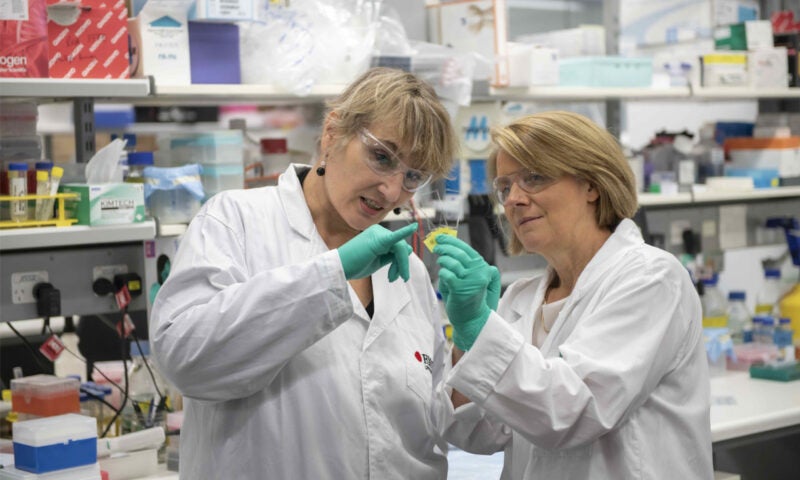
The Victorian government of Australia has awarded a grant, worth over $498,000, to the Walter and Eliza Hall Institute of Medical Research (WEHI) and the Royal Melbourne Institute of Technology (RMIT) University research team to translate knowledge from ovarian cancer clinical trials to develop vaccines.
The grant was awarded by the Victorian Medical Research Acceleration Fund (VMRAF).

Discover B2B Marketing That Performs
Combine business intelligence and editorial excellence to reach engaged professionals across 36 leading media platforms.
WEHI professor Clare Scott, University of Sydney NHMRC Clinical Trials Centre associate professor Chee Lee, Prince of Wales Hospital professor Michael Friedlander, and RMIT University professor Magdalena Plebanski jointly designed a Phase II clinical trial, SOLACE2, which is underway in 15 Australian hospitals.
This trial will detect women with ovarian cancer who could be cured using early treatment with immunotherapy and PARP inhibitor (PARPi) combination therapy.
PARPi hinders the repairing of cancer cells, leading to their death.
Comprehensive immunological profiles of these ‘super-responders’ will be created in the trial, which will also monitor the presence of antigens and neoantigens that aid in enhancing the immune response of the body against cancer cells.

US Tariffs are shifting - will you react or anticipate?
Don’t let policy changes catch you off guard. Stay proactive with real-time data and expert analysis.
By GlobalDataThis approach will aid in potentially predicting whether a tumour will spread or reappear.
The funding will support this approach to aid in the development of vaccine-based therapeutics, including for other ovarian cancer patients.
A team of multi-disciplinary researchers will also work on developing two types of vaccines for cancer.
These tailored vaccines could potentially enhance the immune response of a person.
The Australia New Zealand Gynaecological Oncology Group, along with the NHMRC Clinical Trials Centre, are carrying out the trial.
The University of Sydney is sponsoring the study, which also has support from AstraZeneca.
Professor Scott said: “This funding will enable us to work out what makes ‘super-responders’ so special and kickstarts the next stage, towards the development of new, vaccine-based strategies for ovarian cancer.
“Our ultimate goal is a vaccine that can stop ovarian cancer coming back and could even be effective for preventing recurrence of other cancers.”





